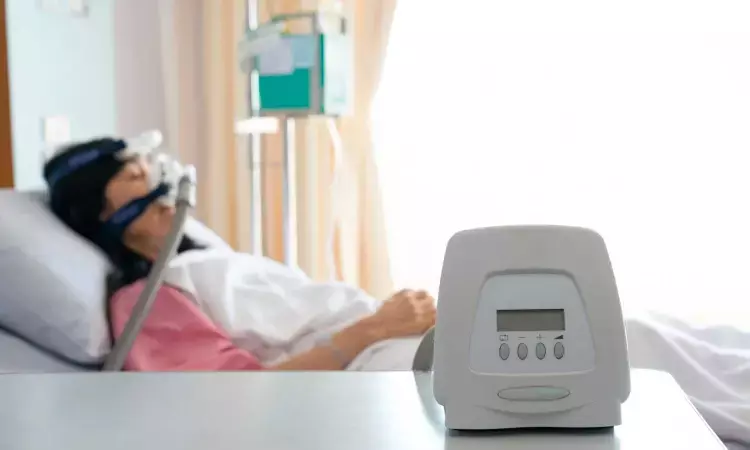- Home
- Medical news & Guidelines
- Anesthesiology
- Cardiology and CTVS
- Critical Care
- Dentistry
- Dermatology
- Diabetes and Endocrinology
- ENT
- Gastroenterology
- Medicine
- Nephrology
- Neurology
- Obstretics-Gynaecology
- Oncology
- Ophthalmology
- Orthopaedics
- Pediatrics-Neonatology
- Psychiatry
- Pulmonology
- Radiology
- Surgery
- Urology
- Laboratory Medicine
- Diet
- Nursing
- Paramedical
- Physiotherapy
- Health news
- Fact Check
- Bone Health Fact Check
- Brain Health Fact Check
- Cancer Related Fact Check
- Child Care Fact Check
- Dental and oral health fact check
- Diabetes and metabolic health fact check
- Diet and Nutrition Fact Check
- Eye and ENT Care Fact Check
- Fitness fact check
- Gut health fact check
- Heart health fact check
- Kidney health fact check
- Medical education fact check
- Men's health fact check
- Respiratory fact check
- Skin and hair care fact check
- Vaccine and Immunization fact check
- Women's health fact check
- AYUSH
- State News
- Andaman and Nicobar Islands
- Andhra Pradesh
- Arunachal Pradesh
- Assam
- Bihar
- Chandigarh
- Chattisgarh
- Dadra and Nagar Haveli
- Daman and Diu
- Delhi
- Goa
- Gujarat
- Haryana
- Himachal Pradesh
- Jammu & Kashmir
- Jharkhand
- Karnataka
- Kerala
- Ladakh
- Lakshadweep
- Madhya Pradesh
- Maharashtra
- Manipur
- Meghalaya
- Mizoram
- Nagaland
- Odisha
- Puducherry
- Punjab
- Rajasthan
- Sikkim
- Tamil Nadu
- Telangana
- Tripura
- Uttar Pradesh
- Uttrakhand
- West Bengal
- Medical Education
- Industry
High Inflammatory Index Linked to Poor Outcomes in Heart Patients with Sleep Apnea: Study

China: A new prospective cohort study from Beijing Anzhen Hospital has found that elevated systemic inflammatory response index (SIRI) significantly increases the risk of major cardiovascular and cerebrovascular complications in individuals diagnosed with both acute coronary syndrome (ACS) and obstructive sleep apnea (OSA). The study, published in the Journal of Inflammation Research, was led by Qian He and colleagues from the Center for Coronary Artery Disease, Capital Medical University.
The research sought to assess whether SIRI—a biomarker derived from neutrophil, monocyte, and lymphocyte counts—could serve as a reliable predictor of long-term adverse cardiovascular events in this high-risk population. SIRI reflects the degree of systemic inflammation, which is known to play a critical role in atherosclerosis and cardiovascular disease progression.
The study included a total of 1,011 patients diagnosed with ACS and OSA, between June 2015 and January 2020. SIRI levels were measured upon hospital admission, and based on an optimal cutoff value of ≥1.16 × 10⁹/L derived from receiver operating characteristic (ROC) curve analysis, patients were divided into high and low SIRI groups.
The following were the key findings of the study:
- Over a median follow-up period of 2.8 years, 179 patients experienced major adverse cardiovascular and cerebrovascular events (MACCE), including cardiovascular death, recurrent myocardial infarction, stroke, or ischemia-driven revascularization.
- Kaplan–Meier analysis revealed a significantly higher incidence of MACCE in the high SIRI group.
- After adjusting for clinical confounders, high SIRI levels were independently associated with a 44% increased risk of MACCE (adjusted hazard ratio: 1.44).
The study further emphasized that SIRI’s prognostic power goes beyond traditional OSA severity indicators such as the apnea-hypopnea index. The biomarker offers a more comprehensive view of immune activation and systemic inflammation, which could explain its strong association with cardiovascular outcomes.
However, the authors acknowledge several limitations. The study was conducted at a single center, and the diagnosis of OSA was based on portable polygraphy, which may underestimate its severity. Moreover, the lack of post-discharge data on OSA treatment adherence and seasonal variability in blood sample timing could affect the findings. Patients with recent infections or corticosteroid therapy were also not excluded, introducing potential selection bias.
Despite these limitations, the study presents compelling evidence that SIRI could serve as a valuable tool for identifying high-risk patients with ACS and OSA. The researchers call for future investigations to evaluate whether interventions guided by SIRI measurements can help reduce cardiovascular events in this vulnerable group.
Reference:
He Q, Zhou Y, Tong X, Zhen L, Shi S, Gong W, Nie S. Prognostic Value of the Systemic Inflammatory Response Index in Patients with Acute Coronary Syndrome and Obstructive Sleep Apnea. J Inflamm Res. 2025;18:7515-7527. https://doi.org/10.2147/JIR.S515437
Dr Prem Aggarwal, (MD Medicine, DNB Medicine, DNB Cardiology) is a Cardiologist by profession and also the Co-founder and Chairman of Medical Dialogues. He focuses on news and perspectives about cardiology, and medicine related developments at Medical Dialogues. He can be reached out at drprem@medicaldialogues.in


